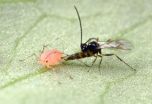(Press-News.org) More than three quarters (77%) of cancer patients who first present to their family doctors (GPs) with suspicious symptoms are referred to hospital after only one or two consultations, a new study has found. However, the new research also shows a wide variation in the number of times a cancer patient sees their general practitioner before they are referred to a specialist, with the most pre-referral consultations occurring when the cancer was one of the less common types, or when the patient was either female, young, or an older person from an ethnic minority. The research was published today, 24 February, in the journal The Lancet Oncology.
The study, led by researchers at the University of Cambridge, found that patients with breast, melanoma, testicular and endometrial cancers are more likely to be referred to a specialist after just one or two consultations. However, patients with some less common cancers such as multiple myeloma, pancreatic, stomach and ovarian cancer, as well as patients with lung and colon cancers and lymphomas are more likely to require three or more visits to their family doctor before they are referred to a hospital specialist. Patients with multiple myeloma, a blood cancer that is notoriously difficult to diagnose since it mimics many other conditions, are 18 times more likely to require three or more pre-referral consultations compared with patients with breast cancer.
"These findings highlight limitations in current scientific knowledge about these cancers," said lead investigator Dr Georgios Lyratzopoulos, Clinical Senior Research Associate at the University of Cambridge. "Medical research in recent decades has prioritised improving cancer treatments, but knowledge about the 'symptom signature' of common cancers and practical solutions on how best to diagnose them is still emerging. Hopefully, our study will stimulate investment into research, focusing on patients with cancers and characteristics where the potential to improve the experience of diagnosis of cancer is greatest."
The researchers have also found that the diagnosis of cancer is more challenging among young patients, women, and older ethnic minority patients – all of these three groups are known to have a lower risk of developing cancer compared with older, male and white patients in the United Kingdom.
These findings amplify similar patterns first reported by co-author Dr Richard Neal, Senior Lecturer in General Practice at Bangor University, among cancer patients who took part in a similar survey that was carried out in 2000. Dr Neal said: "The fact that the diagnosis of cancer may be more challenging in some patient groups and for some cancers can help us to tailor diagnostic efforts. The findings will also inform the forthcoming update of the NICE Guidelines for Referral of Suspected Cancer, which will have an important impact on policy and practice."
The researchers proposed some explanations as to why some of the patient groups were less likely to receive a prompt referral:
As differences in ethnic minorities were only apparent for older patients, they indicate that communication difficulties may be responsible.
For bladder cancer, women were more than twice as likely as men to have required three or more consultations with their doctor before a decision to refer to hospital was made. In women, there may be difficulties in discriminating symptoms and signs of bladder cancer from those of benign gynaecological conditions or bladder infection.
As young people have a lower rate of cancer, the researchers believe GPs are less likely to consider cancer as a possibility.
The research used data from more than 41,000 patients with 24 different cancers who took part in the English National Cancer Patient Experience Survey 2010. (The UK government has indicated that patient experience is a critical aspect of measuring care quality.) The researchers examined variation in the number of general practitioner consultations with cancer symptoms before hospital referral to diagnose cancer.
"Whilst doctors may have concerns about the accuracy of patient-reported data, we have good reasons to believe the validity of our findings", said co-author Greg Rubin, Professor of General Practice and Primary Care at Durham University. "This is because they correlate well with data collected by general practitioners who took part in the independent National Audit of Diagnosis of Cancer in Primary Care. We hope further strides towards diagnosing cancer earlier will be made through the use of both patient experience and clinical audit data."
In order to improve the promptness of referrals, the study makes recommendations for both clinicians and policy makers. For clinicians, they highlight the need to be more aware of some of the patient groups and cancers which tended to be diagnosed less promptly and the need to participate in data collection to benchmark their practice. They also suggest that policy makers 'should explore and evaluate physician-level educational interventions, further development of point-of-care decisions aids, risk calculators and diagnostic tests, and system re-design to enable greater appropriate and timely use of specialist diagnostic tests (such as imaging or endoscopy)'.
Although the researchers are based in the UK, they believe their findings have implications for other countries as well, as they reflect the difficulties of diagnosis cancers with non-specific symptoms and signs more generally. Most patients subsequently diagnosed with cancer first see a doctor in the community regardless of where they live.
###
For additional information please contact:
Genevieve Maul, Office of Communications, University of Cambridge
Tel: direct, +44 (0) 1223 765542, +44 (0) 1223 332300
Mob: +44 (0) 7774 017464
Email: Genevieve.maul@admin.cam.ac.uk
Notes to editors:
1. The paper 'Variation in the number of general practitioner consultations before hospital referral for cancer: findings from a national patient experience survey' will be published in the 24 February 2012 edition of The Lancet Oncology.
2. Additional useful information can be found:
National Awareness and Early Diagnosis Initiative http://www.nhs.uk/NHSEngland/NSF/Pages/NAEDI.aspx
National Audit of Cancer Diagnosis in Primary Care co-ordinated by the Royal College of General Practitioners
http://www.rcgp.org.uk/pdf/National_Audit_of_Cancer_Diagnosis_in_Primary-Care.pdf
National Cancer Patient Experience Survey Programme - 2010: national survey reports at the Department of Health website. http://www.dh.gov.uk/en/Publicationsandstatistics/Publications/PublicationsStatistics/DH_122516 or at the website of the specialist survey provider Quality Health
http://www.quality-health.co.uk/cancer-survey-materials.html
END
A compound in citrus fruits may reduce your stroke risk, according to research reported in Stroke: Journal of the American Heart Association.
This prospective study is one of the first in which researchers examine how consuming flavonoid subclasses affects the risk of stroke. Flavonoids are a class of compounds present in fruits, vegetables, dark chocolate and red wine.
"Studies have shown higher fruit, vegetable and specifically vitamin C intake is associated with reduced stroke risk," said Aedín Cassidy, Ph.D., the study's lead author and professor of nutrition at ...
Researchers at the RIKEN-MIT Center for Neural Circuit Genetics have discovered an answer to the long-standing mystery of how brain cells can both remember new memories while also maintaining older ones.
They found that specific neurons in a brain region called the dentate gyrus serve distinct roles in memory formation depending on whether the neural stem cells that produced them were of old versus young age.
The study will appear in the March 30 issue of Cell and links the cellular basis of memory formation to the birth of new neurons -- a finding that could unlock ...
Stavros "LOTSandLOTS" Ioannou, one of the latest up and coming poker players to be sponsored and mentored by Badbeat.com, has begun with a winning streak that started with two MTTs then, the following week, 2nd in the EUR5k guaranteed EUR50 Turbo on Poker Time and 3rd in the $10k Guaranteed $5 Rebuy on Poker Encore for $2.1k. Now bankrolled and tutored by Badbeat.com, prospects look good for the young poker player.
"My first day with Badbeat.com was a good one -- I played 6 MTTs in total and final tabled 3/6 winning two of them," said Ioannou. "My ...
A new study reports that the disintegration of the Maya Civilization may have been related to relatively modest reductions in rainfall.
The study was led by Professors Martín Medina-Elizalde of the Yucatan Center for Scientific Research in Mexico and Eelco Rohling of the University of Southampton in the UK. Professor Rohling says:
"Our results show rather modest rainfall reductions between times when the Classic Maya Civilization flourished and its collapse – between AD 800-950. These reductions amount to only 25 to 40 per cent in annual rainfall. But they were large ...
Nursing home residents over the age of 65 who take certain antipsychotic medication for dementia are at an increased risk of death, suggests a research paper published today on bmj.com.
The Harvard Medical School study, the largest ever undertaken among US nursing home residents, looked at 75,445 older nursing home residents from 45 US states between 2001 and 2005. All nursing home residents studied were 65 and over. Risks of mortality were looked at during a six month period.
The US Food and Drug Administration (FDA) warned in 2005 that atypical antipsychotic drugs ...
In the war between parasite and host, the parasitic wasp, Aphidius ervi, and the pea aphid, Acyrthosiphon pisum, are locked in a battle for survival. New research published in BioMed Central's open access journal BMC Biology shows that this cunning parasite sniffs out differences between protected and unprotected aphids, and alters its egg-laying strategy, in order to overwhelm aphid defenses and ensure survival of wasp offspring.
The wasp, A. ervi, lays an egg inside the pea aphid, where the egg hatches and converts the aphid's insides into a wasp nursery. The wasp ...
Spacious new homes on large, hillside homesites in Fair Oaks Ranch are coming to Santa Clarita at Crest View, where Los Angeles homebuilder Pardee Homes has set Saturday, March 3 for grand opening festivities. The Crest View sales center will open at 10 a.m. and home shoppers are invited to enjoy self-guided tours of 4 fully decorated model homes.
Grand opening visitors can also take in a lively session with Sandy Krogh of Culinary Consultants. Demonstrating Crest View's upscale G.E. appliance line in a model home kitchen, Sandy will present delicious and easy springtime ...
Age-related macular degeneration (AMD) is one of the leading causes of blindness worldwide, especially in developed countries, and there is currently no known treatment or cure or for the vast majority of AMD patients. New research published in BioMed Central's open access journal Genome Medicine has identified genes whose expression levels can identify people with AMD, as well as tell apart AMD subtypes.
It is estimated that 6.5% of people over age 40 in the US currently have AMD. There is an inheritable genetic risk factor but risk is also increased for smokers and ...
In recent years, a number of controversial claims have been made about the female mammal's egg supply – that it is renewed over her adult lifetime (as opposed to the conventional understanding that she is born with all of her eggs), and that the source of these eggs is stem cells that originate in the bone marrow. Now, Weizmann Institute scientists have disproved one of those claims and pointed in new directions toward resolving the other. Their findings, based on an original method for reconstructing lineage trees for cells, were published online today in PLoS Genetics.
The ...
Scientists have discovered a new target in their fight against the devastating global disease 'malaria' thanks to the discovery of a new protein involved in the parasite's life cycle.
The research has uncovered a vital player in the sexual phase of the malaria parasite's reproduction which could prove an effective target for new treatments to stop the disease in its tracks.
The scientists from The University of Nottingham's School of Biology, with collaborators from the Universities of Leicester, Oxford, Imperial College London and Leiden in the Netherlands, have just ...



